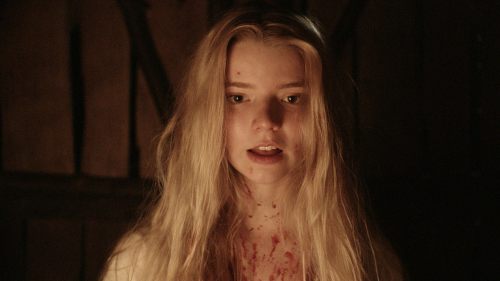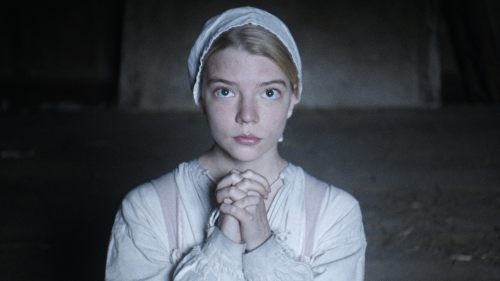EMMA. Review: This One’s For The Fans
Though it’s sometimes impossible to separate one’s expectations for a film from the experience of watching it, I really do try to leave preconceived notions at the door when I’m contemplating a review. So here’s the problem with Emma. It is, without question, a perfectly serviceable adaptation of Jane Austen’s novel of the same title – sans the period, which is apparently a necessary cinematic flourish here – but I also can’t quite recommend it for anyone but fans of Austen’s work. There are hints of wider appeal that were the main reason that I found the film so intriguing upon seeing the trailer, but Emma. is either unwilling or unable to bring anyone else into the fold.
For the uninitiated, Emma. is the story of Emma Woodhouse (Anya Taylor-Joy), a twenty-one-year-old woman who lives with her socially awkward father (Bill Nighy) and fancies herself a matchmaker after setting up her former governess with a husband. She attempts to do so again with her best friend Harriet (Mia Goth), making a judgment that the local vicar (Josh O’Connor) is a more worthy match than the clearly interested gentleman who has already proposed. A comedy of manners ensues as attractions are rarely mutual and often mistaken, and Emma herself finds that she is not immune to the antagonistic charms of her friend Mr. Knightley (Johnny Flynn).
To Emma.’s credit, it is a lusciously costumed and handsomely shot film, and there’s rarely a moment where there isn’t something interesting to look at in this world conceived of seasonal greens and whites accented with perpetual yellows and pinks. And the cast that occupies these spaces is uniformly excellent and well-cast. Anya Taylor-Joy really is a star in the making, conveying Emma’s petulance and short-sightedness while still making her empathetic and likable. It’s the comic roles that stand out the most, however, from Nighy’s flailing insistence that there is always a draft in the room, to O’Connor’s leering thirst to the point of absurdly grandiose romantic gestures, to Miranda Hart’s turn as a neighbor who seems utterly incapable of allowing a conversation to end. It’s easy to see why these characters have enduring charm when conveyed so lovingly.
But Emma. is perhaps too in love with its source material for its own good. This may be a symptom of Jane Austen’s particular brand of will-they won’t-they storytelling, but director Autumn de Wilde and screenwriter Eleanor Catton seem to have conceived their version with the idea that we all know the beats of this narrative and that the enjoyment is not in allowing the story to unfold naturally but in seeing those iconic moments play out with actors and set dressing. The most egregious example of this ethos is in the score, which can be overbearing to the point of drowning out the nuance of the performances and often betrays the tone of a scene before that emotion can be arrived at naturally by the audience. That’s is fine if you know this story by heart, but it also means that the film’s winking absurdist elements are never given enough room to expand beyond the confines of what Austen fans already know and expect.
There is a brief moment in Emma. where Miss Woodhouse speaks out of turn with unrestrained emotion, and it made my screening audience gasp at the scandal of it. This is a plot point pulled straight from the novel, but it was such an uncharacteristic shock when juxtaposed to the perpetual restraint exhibited prior that even the diehard Austen fans were woken from the film’s comfortable, unchallenging embrace. As you’ve probably surmised by now, I’m not the biggest Jane Austen fan, and I certainly don’t begrudge those who are from finding pleasure in a film that caters specifically to them. But there are hints of untapped potential in Emma., in the visual detail, the witty dialogue and performances, the baby steps into deconstruction of a classic tale, that feel wasted in service of just providing what is expected.



